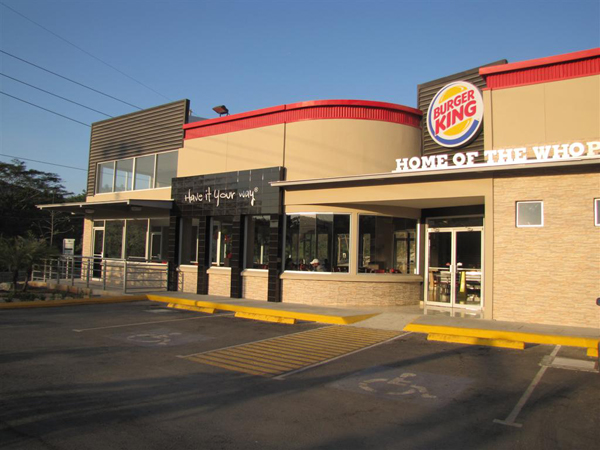
Photo byArianna McKinney
Hamburgers, pizza, fried chicken and hot dogs. What they all have in common, in addition to being popular foods, is that they all possess harmful short-term and long-term effects in the health of those who consume them often.
And now with the opening of the new Burger King on the corner of the highly-transited intersection at the entrance of Nicoya, between Santa Cruz and Nandayure, some Nicoyans are concerned about the change in dietary habits.
When we talk about food and dietary habits in the Nicoya peninsula, we inevitably relate it with rice and beans, tortillas and rosquillas as part of the traditional diet in Guanacaste.
Moreover, the inhabitants of the canton of Nicoya are recognized worldwide for living in one of the so-called blue zones of the planet, according to the site www.bluezones.com, which points out that Nicoyans plan their meals in a way that they eat the biggest meal during the morning and leave the lightest meal for the night.
However, what our grandparents harvested many times in their gardens and later cooked and prepared with care to enjoy it at the table as a family has been replaced by a generation that moves at an increasingly rushed pace, so much so that on occasions there is not enough time to eat together.
In Nicoya it’s now more common to see restaurants that offer easy-to-prepare food high in calories on their menus. Its effect has a direct impact not only on the appearance of those who consume it but also on their health condition. They can develop cardiovascular diseases such as hypertension, according to nutritionists.
For example, Mauricio Espinoza Alvarez, nutritionist at the Centro de Educación y Nutrición Infantil de Atención Integral (Cen-Cinai—Center of Education and Complete Care of Child Nutrition) in Liberia, explained that the quantity of calories in a “combo” prepared in a fast food restaurant is between 2500 and 3000 calories, which is equivalent to the total recommended daily intake.
“When a person ingests this food, in reality they are consuming all at once the calories they need for the day,” he commented. “So if this person consumed 5000 calories a day, they would have problems with being overweight.”
In addition, Espinoza indicated that those who lead a sedentary life are candidates not only for gaining weight but also for diseases like hypertension, diabetes and kidney damage.
“Fast foods are loaded with sugar, sodium and saturated fats, so it’s harder for the body to process them and dispose them from the body,” he pointed out.
Many who live in Nicoya are worried about the change in people’s diets. For example, Nicoyan Aramis Suarez commented that “Costa Rica has opened up to the junk food culture, which is seen in the level of obesity, in addition to the large amount of environmental contamination generated by the wastes they produce.” For his part, Benedicto Peña, another resident of Nicoya, thinks that “fast food will always affect the diet, principally of youth.”
Espinoza stressed the importance of eating well, which he defined as taking in the appropriate amount of cereals, fruits, vegetables, meats and dairy products, distributed in at least five meal times daily. In addition, as a complement to good nutrition he recommended regular exercise for at least 30 minutes four times per week, which is a basic need for a healthy body.
| 
